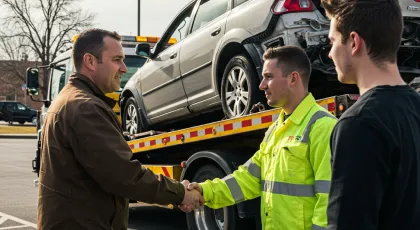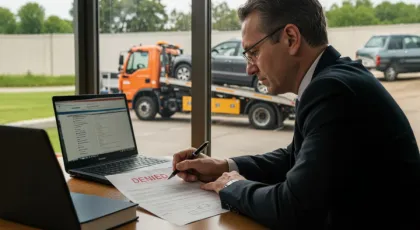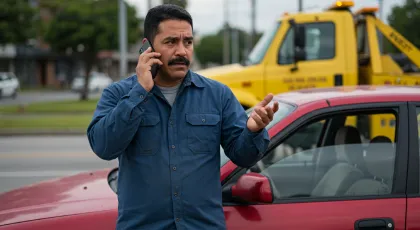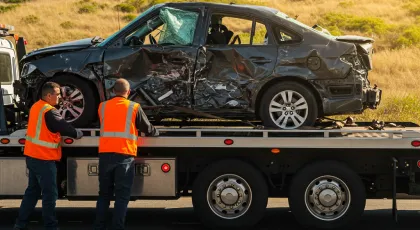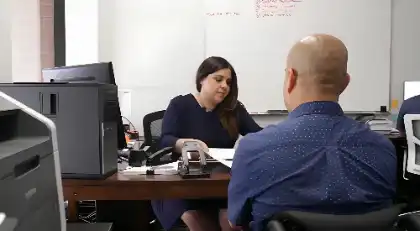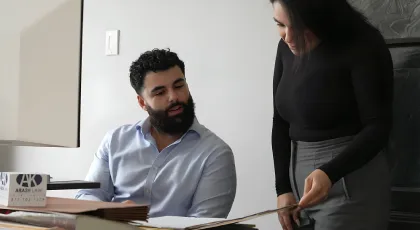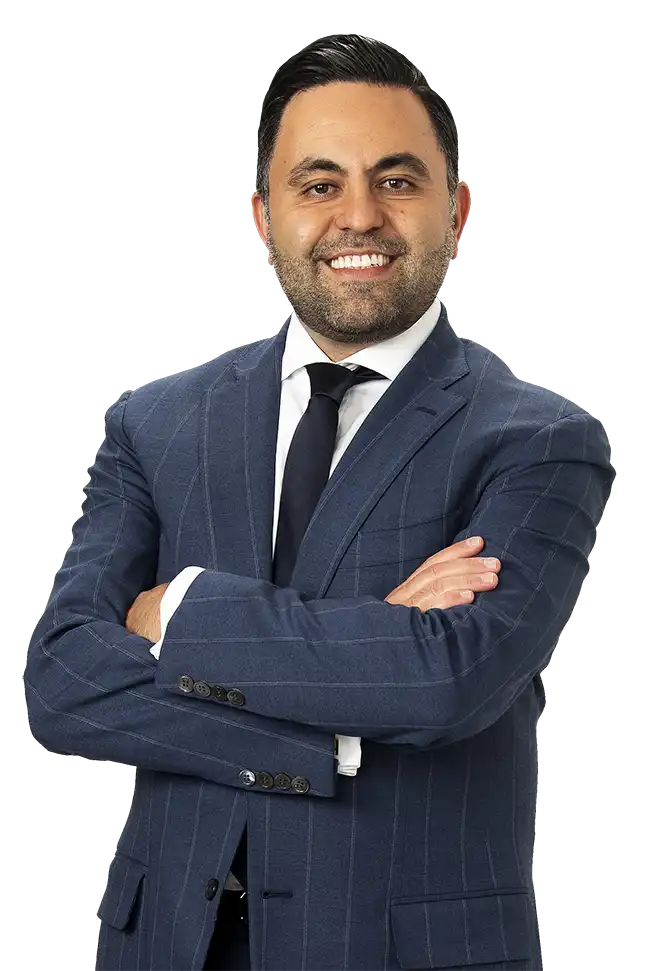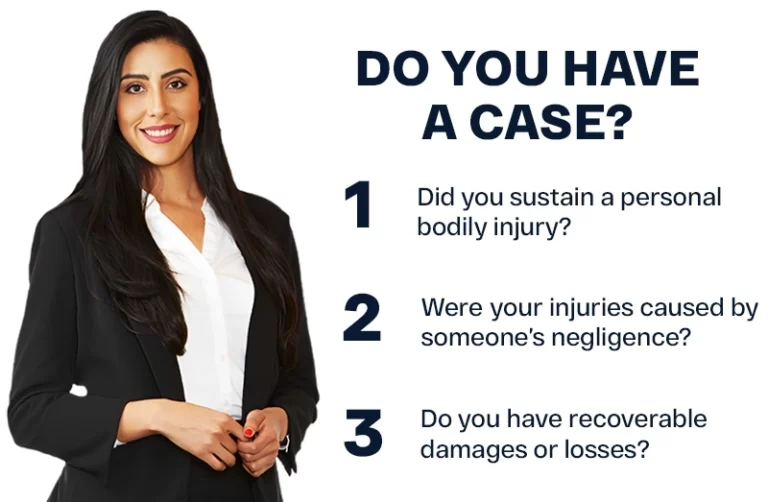TL;DR: In California, the at-fault driver’s insurance usually covers towing and storage fees, but you may need to pay upfront and seek reimbursement. Policy limits, coverage caps, and delays can affect payment. Acting quickly and getting legal help can prevent high daily storage charges.
Table of Contents
If another driver caused your crash, their insurance usually covers towing and storage fees. In California’s fault-based system, you can include these costs in your claim, but you may have to pay upfront and request reimbursement later. Policy limits, towing distance caps, and delays in claim processing can reduce or delay payment.
Storage fees here often range from $20 to $100 per day, so costs can grow quickly if your car stays in the tow yard. Acting fast, knowing your policy, and seeking legal help can help protect your rights and reduce out-of-pocket costs.
Key points to remember:
- At-fault driver’s insurance typically covers towing/storage in California.
- You may need to pay first, then get reimbursed.
- Policy caps and delays can limit coverage.
- Storage costs build daily until the car is released.
- Legal support can help address disputes and may facilitate quicker payment.
If you can’t pay the full amount, the towing company may sell your vehicle at auction after the required holding period, even if the crash wasn’t your fault. Car accident lawyers at the AK Law Firm can review your case and explain whether the at-fault party should cover your towing and storage fees. Schedule a free, no-obligation initial consultation by calling us at (888) 488-1391.
Who Pays For Towing And Storage After An Accident?
The at-fault party typically pays for towing and storage after an accident. However, it may not always be as straightforward. Here are some things to keep in mind:
- The at-fault party may pay directly, as ordered by the court, or through their insurance company.
- You may need to pay upfront and request reimbursement later.
- Coverage may still depend on insurance policy limits, state laws, and other factors.
Storage fees can add up fast, so try to move your car out of the tow yard as soon as you can. If you pay anything out of pocket, keep all your receipts. You may be able to get that money back from the other driver’s insurance or your own. Sometimes, your insurance company will cover the cost and later collect it from the at-fault driver’s insurer.
A car accident lawyer can look at your insurance and help you identify possible avenues to pursue these costs, especially if there are delays or problems with the other driver’s insurance.
Factors That Influence Who Pays For Towing And Storage Fees After An Accident
Towing and storage costs may quickly add up after a collision. When determining who should pay for them, consider the following:
Who Bears Liability
The at-fault driver typically pays for towing and storage as long as they carry enough liability insurance. Here are some things to remember:
- When Filing Against the at-Fault Driver — You can include towing and storage fees in your car accident claim. The insurance should assess all damages, including these costs.
- If the At-Fault Driver Is Uninsured or Underinsured — Your collision coverage may help pay for repairs, towing, and storage. However, this depends on your policy limits and terms. Uninsured motorist accident lawyers can also assist you in exploring other legal avenues for compensation based on your case.
Check your policy carefully. Some plans only cover a limited amount or distance for towing. Some victims may also ask, “If I get rear-ended, does it affect my insurance?” The answer depends on the circumstances of your case. If you’re unsure of what to do, an uninsured motorist accident attorney can help review your coverage and identify other recovery options.
Keep in mind that collision coverage is optional, so it may not apply if you didn’t add it to your policy. A car accident lawyer may assist in reviewing your auto insurance and determining other legal avenues for compensation to pay for towing and storage fees.
State Regulations
If you ask, “Does it matter what state I’m in?” Yes, your state’s insurance laws also influence who pays. States follow either no-fault or fault-based systems. Here’s the breakdown:
No-Fault States
In these states, each driver’s insurance covers medical bills and certain losses, regardless of who caused the crash. However, towing and storage fees often fall outside basic no-fault coverage.
Twelve states and Puerto Rico (a U.S. territory) use this no-fault insurance system:
- Florida
- Hawaii
- Kansas
- Kentucky
- Massachusetts
- Michigan
- Minnesota
- New Jersey
- New York
- North Dakota
- Pennsylvania
- Utah
- Puerto Rico (U.S. Territory)
Fault-Based States
In these states, the driver who caused the accident is usually responsible for damages, including towing and storage. California follows this model, along with the following states:
- Alabama
- Alaska
- Arizona
- Arkansas
- Colorado
- Connecticut
- Delaware
- Georgia
- Idaho
- Illinois
- Indiana
- Iowa
- Louisiana
- Maine
- Maryland
- Mississippi
- Missouri
- Montana
- Nebraska
- Nevada
- New Hampshire
- New Mexico
- North Carolina
- Ohio
- Oklahoma
- Oregon
- Rhode Island
- South Carolina
- South Dakota
- Tennessee
- Texas
- Vermont
- Virginia
- Washington
- West Virginia
- Wisconsin
- Wyoming
However, there are a few exceptional cases and conditions to keep in mind:
- Choice No-Fault States — States like Kentucky, New Jersey, and Pennsylvania operate under a “choice no-fault” system. In these states, drivers have two options:
- No-Fault Coverage — File claims with their own insurer regardless of fault.
- Traditional Tort Coverage — Opt out of the no-fault system and sue the at-fault driver for all losses, including towing and storage fees.
- Pure Comparative Negligence — California follows a pure comparative negligence system. Parties can still pursue compensation if they were partly at fault, but their compensation may be reduced based on their share of the blame.
- Modified Comparative Negligence — In states that follow this system, like Texas, Oregon, and Utah, an individual usually can’t pursue anything if they’re more than 50% or 51% at fault.
Each state sets its own insurance requirements and claims rules. A car accident lawyer who knows your state laws can help guide you in your next steps.
What If The At-Fault Driver Is Uninsured?
You may have to rely on your insurance if the liable driver does not have insurance. This option is only possible if you have the appropriate coverage. These may include:
- Uninsured Motorist (UM) Coverage — This is an optional add-on to your auto insurance policy in California. It helps cover losses if the at-fault driver lacks insurance. However, UM coverage typically does not cover towing and storage fees unless specifically included in the policy. Always confirm the coverage details in your policy.
- Collision Insurance — This coverage generally pays for repair or replacement costs for your vehicle, regardless of who is at fault. It may also cover towing and storage fees, depending on your specific policy.
Lawyers for car accidents can assist you in reviewing your policy. They can guide you on what options may be available to you if the at-fault driver is uninsured.
Can Insurance Companies Deny Coverage For Towing And Storage Fees?
Yes, insurers may deny coverage, even for valid claims. Ideally, they should provide reasons for denial. These may include:
- Amount exceeded policy limits.
- Delayed notification.
- The policy does not include coverage for towing and storage fees.
- Missing relevant documentation.
If they do so without a legal reason, it may be considered bad faith. Signs of bad-faith insurance practices include:
- Denying your claim without an explanation.
- Delaying your claim unnecessarily.
- Offering an unfairly low settlement.
- Failing to investigate your case properly.
- Misrepresenting policy language or state law.
A car accident attorney can review your denial letter and determine if the insurance company acted in bad faith. If so, you may have the right to challenge the denial and seek compensation.
How To Support Your Auto Accident Claim After A Crash
Your priority after any accident is safety. If anyone is injured, call 911 immediately and request police assistance. If your car isn’t drivable, you may need a tow.
Taking the following steps may help your claim after a traffic accident:
File A Formal Report
If police don’t respond, you may need to file a report yourself. In California, you must report accidents involving injury, death, or over $1,000 in damage to the DMV within ten days.
Reporting the incident can also be valuable if the accident involves serious violations like drunk driving. In such a case, a drunk driving accident victim lawyer can guide you through your options if another driver’s impairment caused your crash.
Gather Information And Evidence
Take clear photos or videos of the scene, your injuries, vehicle damage, and dangerous road conditions. Try to collect:
- Insurance and contact information.
- Witness names and numbers.
- Police officer names and badge numbers.
Remove Valuables
Before the tow truck arrives, remove:
- Wallets, electronics, and other valuables.
- Insurance paperwork, registration, and personal documents.
- Medication or anything you’ll need soon.
Talk To The Tow Truck Driver Or Company
If you want to protect yourself from towing charges, it is advisable to communicate with the tow truck driver or company. Here’s what you can do:
- Confirm All Costs & Get Details in Writing — Get details about towing fees, storage costs, and where they will take your car.
- Specify Your Tow Company — They may ask if you have a preferred auto body shop. If you don’t, your insurance company might suggest one. If the accident happens outside regular business hours, the tow company may recommend a shop.
- Keep Invoices & Relevant Documents — If you can’t decide immediately, the car may go to their tow yard, which could result in daily storage fees. Request a receipt or invoice for the tow. These documents help if you need to get reimbursed later.
- Retrieve Your Vehicle Promptly — Towing fees start as soon as your vehicle is impounded, with a per-day fee. Insurance companies will only reimburse “reasonable” costs, usually tied to prompt retrieval.
Contact Your Insurer
Report the accident promptly. If your policy includes towing or labor coverage, your insurer may:
- Pay the towing and storage fees directly.
- Reimburse you later.
If the other driver was at fault, your insurer may seek reimbursement through subrogation. Subrogation means your insurance pays the cost first, then tries to get that money back from the at-fault driver’s insurer. This process may also apply to towing and storage fees, just like with medical bills.
When Should I Get A Lawyer Involved?
If there is a dispute over who should pay for towing or storage, or if your insurance company denies coverage unfairly, it may help to speak with a car accident attorney.
However, hiring a legal representative may not be cost-effective if your claim involves only property damage. Legal help becomes more useful if:
- You suffered injuries.
- The insurance company unfairly denied coverage for your car.
- The insurance company is acting in bad faith.
If your insurance company is resisting paying towing and storage costs, car accident attorneys can review your case. They may be able to explain your options during a consultation. When the collision resulted in injuries, it’s natural to think, “I need a personal injury lawyer.” In such a case, injury attorneys can assist in exploring the options available for your situation. They may be able to address certain concerns. For instance, if you wonder, “Does auto insurance pay for an accident attorney?” Your car accident lawyer can provide insight based on the specifics of your case.
Working with a local lawyer may offer more immediate support. For example, if the accident occurred in San Joaquin, local attorneys may be more familiar with the local process and insurance procedures. San Joaquin car accident lawyers can provide legal assistance for you.
Are Towing And Storage Fees Covered If My Car Is Totaled?
Yes. If your vehicle is totaled, reasonable towing and storage fees are usually part of your claim. Here’s how it works:
- Insurers declare a vehicle a total loss if repairs cost more than 75%–80% of its value.
- You’ll receive the actual cash value (ACV) of your car, minus your deductible.
- Towing and storage costs are included, but only up to the point where the insurer offers a settlement. Delays on your end could result in uncovered fees.
If you disagree with the insurer’s ACV or want to keep the car with a salvage title, you may negotiate. A car accident attorney can help if you feel your insurer undervalued your vehicle or mishandled your claim.
How Do I File For Reimbursement?
After a car accident in California, you may seek reimbursement for towing and storage fees if the other driver is at fault.
If the at-fault driver’s insurance accepts liability, they’re generally responsible for covering “reasonable” towing and storage fees. You’ll often need to pay these costs upfront, then file a reimbursement claim with the insurer. In some cases, the towing company may bill the insurance directly, but it may not always be the case. Here’s how you may reimburse after an accident:
- Gather All Necessary Documentation — Obtain and keep all receipts and expenses related to the tow truck company. All documents have to contain the date, time, and crash location.
- Notify the at-Fault Driver’s Insurance Company — You’ll submit your reimbursement request directly to the at-fault driver’s insurance company. If you’re working with your own insurer under collision coverage or uninsured motorist property damage, submit everything to your provider instead. A claims adjuster will review your documentation and determine what’s reimbursable under the policy and state guidelines.
If the process seems overwhelming to you, accident lawyers can provide legal assistance in these situations.
Common Mistakes That May Cost Victims After An Accident
Delays may cost victims additional charges. If you wait too long to report the accident or leave your car in storage for several days, you may not be able to reimburse certain fees. Common mistakes may include:
- Not collecting or submitting proper receipts.
- Failing to note the tow yard location.
- Not confirming which insurer is responsible (yours or theirs).
- Assuming all fees will get coverage.
- Not being aware of the towing and storage limits in policies.
Always review your policy and ask the at-fault driver’s insurer about their coverage limits and timelines. Knowing this ahead of time may help avoid additional costs. It may also be advisable to consult a lawyer after a collision. Knowing when and how to file a claim after a car accident could also prevent you from missing a deadline. Collision lawyers can provide other legal insights that can help you make informed decisions.
What Is Subrogation — And Why It Matters
Subrogation is when insurers pursue damages they initially covered against the liable party’s insurance company. Here is how it typically works:
- Your insurance pays for tow and storage fees.
- Once the case gets settled, they will reimburse charges they initially covered from the at-fault party’s insurer.
If you have coverage for collision or uninsured motorist property damage (UMPD), this may pay for tow and storage fees. However, insurers generally won’t pay for costs that fall outside your coverage. If your policy doesn’t include towing or storage fees, subrogation may not apply. It is because your insurer won’t temporarily cover costs excluded from your policy.
Subrogation can be beneficial because:
- You won’t have to wait until your case gets resolved to have towing and storage fees covered.
- It helps you avoid paying tow and storage costs out of pocket.
- You may also be able to recover your deductible.
If you are not familiar with this process, it is recommended to consult your insurance company or your agent. They may also be able to explain if your policy covers storage and towing fees.
FAQs About Storage And Towing Fee Coverage
People often have questions after a collision, and many of them relate to the legal process. Below are some common questions to help you understand the general issues that may come up.
If you need personalized advice, our lawyers for car accidents provide a free initial consultation. Contact us to schedule an appointment.
How Long Do I Have To File A Claim After A Car Accident To Cover Storage And Towing Fees?
Act quickly. Insurers may have short deadlines for towing and storage claims. In California, you have:
- Three years to file a property damage claim under the state’s statute of limitations.
- Ten days to report the crash to the DMV if it caused more than $1,000 in damage.
These claims may include:
- Repair or replacement costs
- Storage and towing fees
- Rental car expenses
A car accident attorney can help you calculate your total losses. They may also guide you on how to file a property damage claim after a car crash.
Does Full Coverage Car Insurance Cover Towing?
Not always. “Full coverage” car insurance usually includes liability, collision, and comprehensive coverage. Towing may only be included if you added roadside assistance.
Ask your insurer if towing is covered. If the other driver caused the crash, their policy may cover your costs instead.
Does Getting Your Car Towed Affect Your Record?
Usually not. You won’t get a record if your car is:
- Towed after a mechanical issue.
- Stuck or broken down.
- Removed after a crash that wasn’t your fault.
You may get a record if your car is towed due to:
- Illegal parking
- Expired registration
- Public safety violations
How Long Do I Have To Remove My Car From The Tow Yard?
You generally have up to 30 calendar days from the impoundment date to claim it. Here are some things to remember:
- Under California law, you have the right to retrieve your vehicle within the first 72 hours of storage without a lien fee.
- The tow facility may begin charging daily storage fees beyond what’s covered by insurance.
- Once 30 days pass, the facility can initiate a lien sale (auction) to recover unpaid towing and storage costs.
Can I Choose My Own Tow Company?
Police may dispatch a tow truck to clear the scene, but you generally have the option to request a different towing company if your vehicle is not posing a hazard. You can contact your preferred towing provider and arrange for them to tow your vehicle if conditions permit.
If your insurance company has a preferred towing provider, using them is often recommended to help facilitate coverage and avoid additional expenses. However, in emergencies, the responding officer may not delay the tow to accommodate personal requests.
Understand Your Rights With Help From Car Accident Lawyers
A crash can leave you dealing with injuries, lost wages, and unexpected costs like towing and storage. These expenses can spiral if the claim drags on. Some insurance companies may delay payment or argue about what’s “reasonable.”
At Arash Law, our car accident attorneys can meet you anywhere in California that’s convenient for you. It can be at your home, hospital, or a nearby café.
We work on a contingency fee basis. You pay no attorney fees unless we recover compensation for you. Our car accident attorneys will explain the terms clearly before you agree to representation. If you prefer to communicate in a language other than English, please inform our team when you contact us.
Don’t let towing and storage costs affect the process of your claim. Fill out our “Do I Have A Case?” form or call (888) 488-1391 to schedule your free initial consultation.

